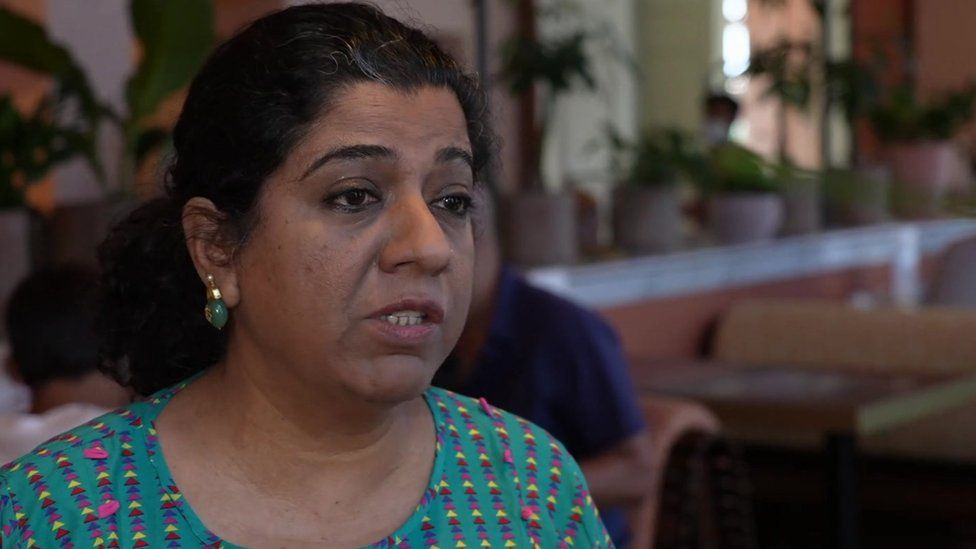UK economic growth rose by 4.8% between April and June, according to official figures, as most businesses emerged from lockdown.
Data from the Office for National Statistics showed that the expansion in gross domestic product (GDP) was fuelled by retail, restaurants and hotels.
Education also boosted the economy as schools reopened in the second quarter.
However, the figure was slightly below the 5% the Bank of England expected.
The UK economy is now 4.4% smaller than it was before the pandemic.
But Capital Economics said it expected the economy to return to pre-Covid levels later this year.
“We are comfortable with our view that monthly GDP will return to its February 2020 pre-pandemic size by October and that the economy may yet surprise most forecasters by emerging from the pandemic without much scarring,” said senior UK economist Ruth Gregory.
Chancellor Rishi Sunak said: “Today’s figures show that our economy is on the mend, showing strong signs of recovery.
“I know there are still challenges to overcome, but I feel confident in the strength of the UK economy and the resilience of the British people.”
In April, non-essential retailers reopened, as well as gyms, hairdressers and outdoor dining. In May, pubs, restaurants and cafes were allowed to serve customers indoors, while theatres, galleries and cinemas were allowed to open their doors.
The main driver of growth was consumer spending, which rose by 7.3% over the quarter, ahead of expectations.
The UK is not just a nation of shopkeepers, but social animals. And it’s that large proportion of “social spending” – on hotels, restaurants and leisure – that made our economy so vulnerable to lockdowns. The UK was the fastest shrinking of the G7 nations in 2020 and conversely, maybe one of the fastest of the big players to recover in 2021 as restrictions lift.
The consumer has led the way, driving output to within 5% of pre-pandemic levels, despite the Delta variant of Covid. It’s growth that some feared just months ago would take far longer to materialise.
But what happens next is still uncertain. The safety net that has protected livelihoods – the furlough scheme – ends in October. Economists think there will be some job losses, albeit far fewer than assumed a year ago.
The biggest risk, however, will come from further variants and a resurgence in infections and restrictions. Policymakers are assuming we’re done with the latter. A year ago, they were predicting there’d be no more national lockdowns: let’s hope they’re right this time.
If so, the impressive vaccination rate in the UK should stand the economy in good stead – others are not that fortunate. Be it health or wealth, it’s access to vaccinations that may increasingly make the difference between the haves and have-nots as we try to escape the grip of this pandemic.
At the end of the quarter in June, the monthly growth is estimated at 1%, slightly more than most economists expected.
Hargreaves Lansdowne said: “Fears that the arrival of the Delta variant and the ‘pingdemic’ that followed might impact growth have so far not really materialised.”
However, the ONS revised down its figure for May from 0.8% to 0.6% during a month of heavy rainfall.
The UK economy has been supported by the government’s wage support scheme. But from July, employers have had to make contributions to staff wages and the scheme is set to close by the end of September.

The economy is rebounding but the pandemic is still having an impact on the restaurant trade, according to Asma Khan, founder and owner of Darjeeling Express, a family-owned Indian restaurant in London’s Covent Garden.
“I’m very grateful for the furlough, it has allowed me to keep my entire staff on furlough,” she told the BBC.
“But there was no support for me, I was still liable – all the rents and all the financial costs mounted up.”
Ms Khan says she doesn’t think the government has supported the hospitality industry sufficiently: “I would love Boris Johnson, Priti Patel to come and work a shift in my restaurant.”
BBC




